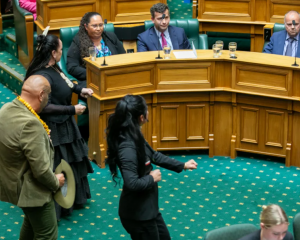The Otago Daily Times' series on the decline in local club sport has been revealing in the extent of the fall.
Clubs in rugby, softball, cricket and netball in Dunedin lost 1800 members between 1995 and 2005, and the trend is continuing.
And while football held its own, notably with the introduction of age grades, other sporting codes have suffered.
The reasons are many and varied, as the series explored, including the growth of social leagues in some sports, such as netball, with little long-term commitment and the absence of a club structure.
Then there is the burgeoning range of sporting choice. Futsal has become popular and mountain biking - including a club component - has thrived.
People just doing their own thing is especially apparent. There are still plenty of joggers even if harrier club membership has plummeted.
While this newspaper's series covered developments from 1984 until this year, it is likely change began earlier.
Robert Putnam published in 1995 in a little-known academic journal an article called Bowling Alone: America's Declining Social Capital.
He noted Americans were still bowling in large numbers but were much less likely to do so in organised leagues. He broadened his point across politics, churches, unions, parent-teacher organisations.
He argued that as civic participation falls so does ‘‘social capital''. Co-operation and trust suffers and communities are the poorer.
‘‘Bowling Alone'' became a phrase to sum up a more individualistic society. Changes were traced to beginnings in the 1960s and 1970s, accelerating with time. Television received some of the blame.
Today in New Zealand, the parallels are clear.
The internet and its myriad options and on-demand services, computer games and lives on screen usually fail to foster personal and community interaction, although it is possible the emergence of social media groups and links could be establishing new forms of engagement and new ways of expressing concerns.
Therefore, it is not just Otago sporting clubs - often with long traditions and multi-generational involvement - that have suffered.
Service clubs such as Rotary and Lions struggle for members, especially younger ones, while once thriving and fruitful Jaycees has all but disappeared. In contrast, many Probus clubs, which require relatively little commitment, have thrived.
Part of the avoidance of engagement has arisen not just because of lessening concern and less desire for community involvement but because of societal changes.
All parents now expect to spend more time with their children and to help around the house. Time to spend at the club or the pub is just not there or is mimimal.
The trend is across ages and backgrounds. Student activism at the University of Otago has fallen away, for example, and voting percentages have steadily slipped for both national and local elections as the population is less engaged, less involved and less interested.
Once, where citizens might have belonged to political parties, churches and interest groups, the chances now are they will belong to few organisations.
Naturally, there are plenty of exceptions and we suspect ‘‘social capital'' in the South is healthier than in many places.
We see illustrations of connectedness and concern every day in the newspaper, and the paper itself provides a core means of staying in touch with what is happening in our communities.
Nonetheless, it is clear social engagement has declined. And in an age when change is speeding up, it could well come under increased threat.
All sports clubs and other organisations can do, if they are to have a future, is to adapt as well as build on their residual strengths.
Human beings have fundamental needs to be part of groups and communities, to belong, and it must be hoped this can be fostered in new ways and old. We will all, as individuals and communities, be the healthier for that.












